A four-night, five-day trip in which you traverse the Seto Inland Sea and then travel from west to east through Shikoku. Enjoy the mild climate of the Seto Inland Sea, the beautiful water, and delicious gourmet food.
| Locations Visited | Hiroshima - Ehime - Kagawa - Okayama 4-nights trip |
|---|---|
| Learning Themes | Traditional culture Natural environment Japanese food |
Highlights
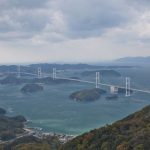
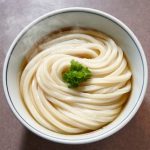
Itineraries
Day 1
Afternoon
In addition to offering access from Haneda and Narita airports in Japan, there are also direct flights to Hiroshima Airport from Taiwan, Hong Kong, China, and Singapore.
You can also get there by Shinkansen (bullet train).
Travel to Onomichi. (approx. one hour by car or one hour and a half by train)

Tourist Spot
Day 2
All Day
Take the Shimanami Kaido across the Seto Inland Sea to Imabari in Ehime Prefecture on the opposite shore.
The Shimanami Kaido is an expressway that connects Onomichi in Hiroshima Prefecture with Imabari in Ehime Prefecture.
It connects islands of various sizes in the Seto Inland Sea, and you can enjoy beautiful scenery as you cross the Seto Inland Sea.
The following site provides information about the Shimanami Kaido:
https://visithiroshima.net/things_to_do/attractions/islands/islands_along_shimanami_kaido.html
It is also one of Japan's best-known cycling roads, so you can also cycle across the bridge.
You can enjoy gourmet cuisine, hot springs, and beautiful beaches at the islands along the way, and there's also a place where you can learn about the history of the "Murakami Suigun" pirates, who were once active in the Seto Inland Sea.
Some of the islands also have minpaku (private lodging).
And Ehime Prefecture is also famous as a tangerine-producing area, and you can pick tangerines at various spots in the prefecture from autumn to winter.

Tourist Spot
Murakami Suigun Museum open_in_new
A museum about the "Murakami Suigun" pirates, who were once active in the Seto Inland Sea.
Day 3
Morning-Afternoon
Travel to Kotohira in Kagawa Prefecture. (approx. one hour and a half by car or approx. two hours by train)
Kompira Shrine, affectionately known as "Kompira-san," is famous as a shrine where people pray for safety on the seas.
From the approach, you need to ascend 785 stone steps to reach the main shrine, which takes about 45 minutes, but there are restaurants and souvenir shops along both sides, and you can also enjoy the beautiful scenery as you make your way up.
Nearby is the Kanamaru-za, Japan's oldest kabuki theater, and you can also view the interior.
Enjoy udon
In the vicinity of Kotohira-gu are numerous restaurants serving udon, Kagawa Prefecture's most famous product.
Udon is a traditional Japanese dish, but Kagawa Prefecture is especially well known, and they are known as "Sanuki udon."
Their appeal is the firm texture of the noodles and the simple soup.
There is also a place where you can try your hand at making udon.

Tourist Spot
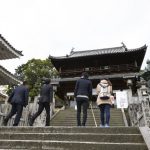
Kotohira-gu open_in_new
A popular shrine known affectionately as "Kompira-san." It is famous for its long path of stone steps, and also retains valuable historical buildings and works of art.
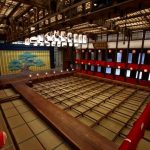
Kanamaru-za open_in_new
A kabuki theater that was built in the Edo period, and is Japan's oldest theater of the existing ones. Even today, a kabuki performance is held once a year in the spring.
Nakano Udon School, Kotohira Branch open_in_new
You knead the flour to make noodles, and then boil them and eat your hand-made udon.
Evening
Travel to Takamatsu in Kagawa Prefecture. (approx. one hour by car or approx. one hour and a half by train)
Day 4
Morning-Afternoon
Take a stroll around the Ritsurin Garden, and from the afternoon, have a school exchange in or around Takamatsu.

Tourist Spot
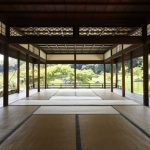
Ritsurin Garden open_in_new
A Japanese garden that is one of the largest in the country. It features a large pond and various trees and shrubs, and the beauty of the park changes with each passing season.
Evening
Travel to Kurashiki in Okayama Prefecture. (approx. one hour by car and 1.5 hours by train)
Day 5
Morning
The Kurashiki Bikan Historical Quarter is an area where the historical townscape has been preserved. Merchants' houses built in the Edo period along with willow trees line the river on either side, and this atmospheric scenery is the main attraction.
It's also a bustling tourist spot, where in addition to gourmet food and shopping, you can enjoy hands-on craft lessons as well as art galleries and museums.

Tourist Spot
Ohara Museum of Art open_in_new
An art museum that displays mainly Western art collected by a businessman from Kurashiki. It features numerous works from world-famous artists such as Monet and El Greco.
Kurashiki Ivy Square open_in_new
A tourism complex with a hotel and a restaurant that is housed in a renovated spinning mill that was built over 100 years ago. You can also try pottery.
Afternoon




